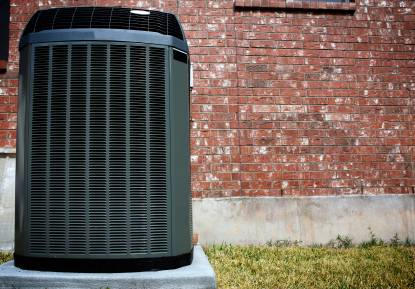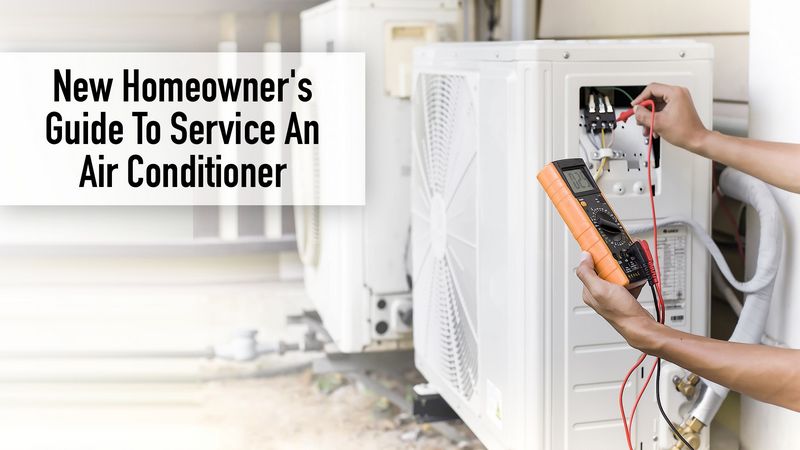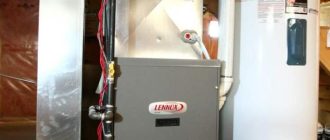
A Homeowner’s Guide: Choosing a New Air Conditioner
When the temperatures start to rise, a reliable air conditioner becomes an essential part of any homeowner’s comfort. However, choosing the right air conditioner can be a daunting task with so many options available on the market. This ultimate buying guide aims to provide homeowners with the necessary information to make an informed decision when it comes to purchasing a new air conditioner.
First and foremost, it is crucial to understand the different types of air conditioners available. The most common types include window units, portable units, ductless mini-split systems, and central air conditioning systems. Each type has its own pros and cons, so it is essential to evaluate factors such as budget, cooling capacity, energy efficiency, and installation requirements.
Next, homeowners should consider the cooling capacity of the air conditioner. This is measured in British Thermal Units (BTUs) and determines how effectively the unit can cool the space. It is important to choose an air conditioner with the right cooling capacity for the room size to ensure optimal performance and energy efficiency.
In addition to cooling capacity, energy efficiency should also be a top consideration. Air conditioners with higher Seasonal Energy Efficiency Ratio (SEER) ratings consume less energy, resulting in lower utility bills. Look for units with ENERGY STAR certification, as they meet strict energy efficiency guidelines set by the Environmental Protection Agency.
Last but not least, homeowners should factor in their specific needs and preferences when choosing a new air conditioner. Consider features such as programmable thermostats, adjustable fan speeds, air purification capabilities, and noise levels. Additionally, don’t forget to check warranty options and read customer reviews to get a better understanding of the unit’s reliability and longevity.
By taking the time to research and consider these factors, homeowners can make a well-informed decision and choose the perfect air conditioner to keep their home cool and comfortable during the hot summer months.
The Importance of Choosing the Right Air Conditioner
Choosing the right air conditioner for your home is essential for several reasons. Not only does it impact the overall comfort of your living space, but it also affects your energy consumption, monthly utility bills, and the quality of the air you breathe. With so many options available in the market today, it can be overwhelming to make the right choice. However, taking the time to select the right air conditioner can save you money in the long run and provide you with a comfortable and healthy living environment.
One of the main reasons why choosing the right air conditioner is important is its impact on energy consumption. An air conditioner that is too small for your home may struggle to cool the space adequately, resulting in constant running and higher energy bills. On the other hand, an oversized air conditioner will cool the space too quickly, leading to frequent on-off cycles and inefficient energy usage. By choosing the right size and capacity air conditioner for your home, you can achieve optimal cooling efficiency and save on energy costs.
In addition to energy consumption, the right air conditioner can also improve indoor air quality. Some air conditioners come with built-in air purification systems that filter out pollutants, allergens, and other harmful particles from the air. This is particularly beneficial for individuals with allergies, asthma, or other respiratory conditions. Investing in an air conditioner that has advanced air filtration capabilities can help create a healthier indoor environment for you and your family.
Another important factor to consider when choosing an air conditioner is its noise level. A noisy air conditioner can be disruptive, especially if you are trying to sleep or concentrate. Modern air conditioners are designed with noise-reducing features and technologies that help minimize operational noise. Be sure to check the noise ratings of different models and choose one that is known for its quiet operation.
Furthermore, the right air conditioner can enhance the overall aesthetics of your home. With advancements in design and technology, air conditioners are now available in sleek and stylish options that seamlessly blend with your home decor. Whether you prefer a wall-mounted unit, a central air conditioning system, or a ductless mini-split, you can find an air conditioner that not only cools your home but also enhances its visual appeal.
To make an informed decision when choosing an air conditioner, it is important to consider factors such as the size and layout of your home, your cooling needs, energy efficiency ratings, and your budget. Additionally, it is recommended to consult with a professional HVAC specialist who can assess your specific requirements and provide expert advice.
Overall, choosing the right air conditioner for your home is crucial for your comfort, energy efficiency, and indoor air quality. By investing in the right unit, you can enjoy a cool and pleasant living environment while also saving money and improving your overall well-being.
Understanding Different Types of Air Conditioners
When it comes to choosing a new air conditioner for your home, there are several different types to consider. Each type has its own advantages and disadvantages, so it’s important to understand the differences to make an informed decision. Here are some of the most common types of air conditioners:
1. Window Air Conditioners:
- Window air conditioners are installed in a window or through a hole in an exterior wall.
- They are compact and can be a good option for cooling a single room or a small space.
- They are relatively affordable and easy to install, but they may not be as efficient as other types of air conditioners.
2. Central Air Conditioners:
- Central air conditioners are a popular option for cooling an entire home.
- They consist of a large unit that is typically located outside the home and a series of ducts that distribute cool air throughout the house.
- Central air conditioners are usually more expensive to install, but they can provide efficient and even cooling throughout the entire home.
3. Ductless Mini-Split Air Conditioners:
- Ductless mini-split air conditioners are a good option for cooling individual rooms or specific areas of a home.
- They consist of an outdoor unit and one or more indoor units that are mounted on the wall.
- They are typically more expensive than window air conditioners, but they are more energy-efficient and can provide more precise temperature control.
4. Portable Air Conditioners:
- Portable air conditioners are versatile and can be moved from room to room as needed.
- They typically vent hot air through a window or a wall.
- They are relatively easy to install and are a good option for cooling small spaces or for renters who cannot install a permanent unit.
5. Hybrid Air Conditioners:
- Hybrid air conditioners combine the use of electricity and natural gas to cool and heat a home.
- They are energy-efficient and can help reduce energy costs.
- However, they tend to be more expensive and may require professional installation.
Choosing the right type of air conditioner for your home depends on various factors such as the size of your home, your budget, energy efficiency requirements, and personal preferences. Consider consulting with an HVAC professional to determine the best option for your specific needs.
Factors to Consider Before Buying
Before purchasing a new air conditioner, there are several factors that homeowners should consider to ensure they select the right unit for their needs. These factors include:
- Size of the Room: It’s crucial to determine the square footage of the room where the air conditioner will be installed. This will help determine the cooling capacity needed for the unit.
- Energy Efficiency: Look for air conditioners that are Energy Star certified. These units are designed to be more energy-efficient, which will help save on electricity bills in the long run.
- Noise Level: Consider the noise level of the air conditioner, especially if it will be installed in a bedroom or a quiet area. Look for units with low decibel ratings for a quieter operation.
- Installation: Determine if the air conditioner requires professional installation or if it can be easily installed as a DIY project. Consider the cost and convenience of installation when selecting a unit.
- Features: Consider the features that are important to you, such as programmable timers, remote control operation, sleep mode, or air purifying capabilities. These additional features can enhance comfort and convenience.
- Budget: Determine a budget for the air conditioner purchase and stick to it. Compare prices and features of different models to find the best value for your money.
By carefully considering these factors, homeowners can make an informed decision when choosing a new air conditioner and ensure optimal comfort and energy efficiency in their homes.
Proper Sizing for Your Home
Choosing the right size air conditioner for your home is crucial for optimal comfort and energy efficiency. Installing an air conditioner that is too small will result in inadequate cooling, while an oversized unit will consume excess energy and lead to temperature fluctuations.
Here are some steps to determine the proper size for your home:
- Measure the square footage: Calculate the square footage of the space you want to cool. Measure the length and width of each room and then multiply these numbers together. Add up the square footage for all the rooms.
- Consider the insulation: Take into account the insulation in your home. Well-insulated homes require less cooling capacity compared to poorly insulated ones.
- Account for the ceiling height: Rooms with high ceilings may require a larger capacity air conditioner to ensure proper cooling.
- Determine the sun exposure: Note the amount of sunlight each room receives during the day. Rooms with more sun exposure may need a higher cooling capacity.
- Factor in the number of occupants: The number of people in your home can influence the cooling load. A larger number of occupants may result in higher cooling requirements.
After gathering this information, consult with an HVAC professional to determine the appropriate air conditioner size for your home. They will perform a load calculation, taking all these factors into account, to ensure optimal sizing.
Remember, an air conditioner that is too large or too small can lead to comfort issues and increased energy costs. Proper sizing is essential for an efficient and comfortable cooling experience in your home.
Energy Efficiency and Saving Costs
When choosing a new air conditioner for your home, it’s important to consider its energy efficiency rating. An energy-efficient air conditioner not only helps you save on your monthly energy bills but also reduces your environmental impact.
The energy efficiency of an air conditioner is measured by its Seasonal Energy Efficiency Ratio (SEER). A higher SEER rating indicates a more efficient unit. Look for an air conditioner with a SEER rating of at least 14.5, as this is the minimum rating required by federal regulations for new units.
Aside from the SEER rating, there are other features and factors to consider in order to maximize energy efficiency:
- Size: Ensure that the air conditioner is properly sized for your home. An oversized unit will waste energy, while an undersized unit may struggle to cool your home effectively.
- Programmable Thermostat: Invest in a programmable thermostat that allows you to set different temperature levels throughout the day. This way, you can avoid cooling empty rooms and save energy when you’re not at home.
- Insulation: Proper insulation in your home can greatly improve energy efficiency. Ensure that your walls, windows, and doors are well insulated to prevent cool air from escaping and hot air from seeping in.
- Maintenance: Regularly maintaining your air conditioner can improve its efficiency and extend its lifespan. Clean or replace filters as recommended and have the unit serviced annually by a professional.
Choosing an energy-efficient air conditioner may require a higher upfront cost, but the long-term savings on energy bills will outweigh the initial investment. Additionally, some utility companies offer rebates or incentives for purchasing energy-efficient appliances, further reducing the overall cost.
It’s also worth considering other energy-saving features that may be available, such as multi-stage compressors, variable speed blowers, or dual-fuel capability. These features can optimize energy usage and provide additional savings.
In conclusion, selecting an energy-efficient air conditioner not only helps you save on costs but also contributes to a greener and more sustainable world. Take the time to research and compare different models, and consult with a professional HVAC contractor to ensure you make the best choice for your home.
Choosing the Right Cooling Capacity
When selecting a new air conditioner, it is important to consider the cooling capacity of the unit. The cooling capacity is measured in British Thermal Units (BTUs) and indicates how much heat an air conditioner can remove from a room in an hour. Choosing the right cooling capacity is essential to ensure that your air conditioner is capable of adequately cooling your space.
Factors to Consider in Determining Cooling Capacity:
- Room Size: The size of your room or space is a crucial factor in determining the cooling capacity needed. Larger rooms require air conditioners with higher BTUs to effectively cool the area. On the other hand, smaller rooms may only need air conditioners with lower BTUs.
- Insulation: The level of insulation in your home can impact the cooling capacity needed. A well-insulated space will require less cooling capacity compared to a poorly insulated one as it can retain the cool air more effectively.
- Climate: The climate in your area also plays a role in determining the cooling capacity required. Hotter climates will typically require air conditioners with higher BTUs to combat the extreme heat.
Calculating Cooling Capacity:
To calculate the cooling capacity needed for a room, you can use a simple formula:
Cooling Capacity (BTUs) = Room Area (in square feet) x 25 (BTU per square foot)
For example, if you have a room that is 400 square feet, the recommended cooling capacity would be:
Cooling Capacity = 400 sq. ft. x 25 BTU/sq. ft. = 10,000 BTUs
It is important to note that this formula provides a rough estimate, and other factors such as sunlight exposure, number of occupants, and heat-generating appliances should also be taken into consideration.
Choosing the Right Cooling Capacity:
Once you have calculated the cooling capacity needed for your space, it is essential to choose an air conditioner with the appropriate BTU rating. Here is a general guideline:
| 5,000 – 6,000 | 100 – 300 sq. ft. |
| 7,000 – 8,000 | 250 – 400 sq. ft. |
| 9,000 – 10,000 | 350 – 450 sq. ft. |
| 11,000 – 12,000 | 400 – 550 sq. ft. |
| 13,000 – 14,000 | 450 – 700 sq. ft. |
It is crucial to choose an air conditioner with a BTU rating within the recommended range for your room size. An undersized air conditioner will struggle to cool the space efficiently, while an oversized unit may not remove enough humidity from the air.
Choosing the right cooling capacity is vital to ensure that your new air conditioner can effectively cool your space and provide optimal comfort. By considering factors such as room size, insulation, and climate, you can determine the appropriate BTU rating and make an informed decision.
The Importance of SEER Rating
The Seasonal Energy Efficiency Ratio (SEER) is an important rating to consider when choosing a new air conditioner. It measures the cooling efficiency of an air conditioner over a typical cooling season. The higher the SEER rating, the more efficient the air conditioner is.
There are several reasons why the SEER rating is important:
- Energy savings: Air conditioners with higher SEER ratings consume less energy to cool your home. This translates to lower energy bills and reduces your carbon footprint.
- Comfort: Air conditioners with higher SEER ratings can cool your home more effectively, ensuring a comfortable indoor environment even during hot summer months.
- Long-term savings: While air conditioners with higher SEER ratings may have a higher upfront cost, they can provide significant long-term savings due to reduced energy consumption.
- Environmental impact: By choosing an air conditioner with a high SEER rating, you are reducing greenhouse gas emissions and helping combat climate change.
The U.S. Department of Energy sets certain minimum SEER requirements for air conditioners. Currently, the minimum SEER rating for new air conditioners is 13. However, more efficient models can have SEER ratings as high as 25 or more.
It’s important to choose an air conditioner with the right SEER rating for your specific needs. Factors to consider include the climate in your area, the size of your home, and your budget. Consulting with a professional HVAC technician can help you determine the ideal SEER rating for your home.
In conclusion, the SEER rating is an important factor to consider when choosing a new air conditioner. It not only affects energy savings and comfort but also has a significant impact on the environment. By selecting an air conditioner with a high SEER rating, you can enjoy both cost savings and a reduced carbon footprint.
Features to Look for in an Air Conditioner
When choosing a new air conditioner for your home, it’s important to consider various features that can enhance your comfort, energy efficiency, and overall performance. Here are some key features to look for:
- Cooling Capacity: Check the cooling capacity of the air conditioner to ensure it can effectively cool the space where it will be installed. The capacity is measured in British Thermal Units (BTUs), and the higher the BTU rating, the larger the area the air conditioner can cool.
- Energy Efficiency: Look for air conditioners with high Seasonal Energy Efficiency Ratio (SEER) ratings. Higher SEER ratings indicate greater energy efficiency, which can save you money on electricity bills in the long run.
- Noise Level: Consider the noise level of the air conditioner, especially if you plan to install it in a bedroom or other quiet area. Look for models with a low decibel (dB) rating for quieter operation.
- Smart Features: Many air conditioners now come with smart features that allow you to control and monitor them through your smartphone or other smart devices. These features can provide convenience and energy savings.
- Filter Type: Different air conditioners use different types of filters to trap dust, pollen, and other airborne particles. Look for models with high-quality filters that are easy to clean or replace to maintain good indoor air quality.
- Dehumidification: If you live in a humid climate, consider an air conditioner with built-in dehumidification capabilities. This feature can help remove excess moisture from the air, making your home more comfortable.
- Installation Ease: Check if the air conditioner is easy to install or if professional installation is required. Some models may require additional wiring or modifications to your home, so consider the installation process before making a decision.
- Warranty: Look for air conditioners that come with a warranty to protect your investment. A longer warranty period indicates that the manufacturer has confidence in the product’s quality and durability.

By considering these features, you can choose an air conditioner that meets your specific needs and provides efficient cooling and comfort for your home.
Considering Noise Levels
When choosing a new air conditioner, it’s important to consider the noise levels produced by different models. The noise produced by an air conditioner can be a significant factor in your overall comfort and enjoyment of your home.
Most air conditioning units produce some level of noise, but the amount can vary significantly between models. When comparing noise levels, look for the unit’s decibel (dB) rating. The higher the dB rating, the louder the unit will be.
Consider the location of the air conditioner in your home. If it will be installed in a bedroom or living area where you spend a lot of time, you’ll likely want to choose a quieter model. If it’s going to be installed in a basement or utility area where noise is less of a concern, you may be able to choose a louder unit.
Pay attention to the noise levels both indoors and outdoors. Some air conditioners may produce more noise outside the home, which can be a concern if you have neighbors or if you spend a lot of time in your outdoor living areas.
It’s also worth noting that noise levels can vary depending on the operating mode of the air conditioner. For example, if the unit is in a lower cooling or fan speed, it may produce less noise compared to when it’s operating at full capacity.
When comparing different air conditioner models, you can typically find noise level information in the product specifications or user manuals. If noise is a top priority for you, consider choosing models that are specifically designed to be quieter, such as those with noise-reducing features or inverter technology.
In summary, when choosing a new air conditioner, consider the noise levels produced by different models and how it will affect your comfort and the environment in which it will be installed. Be sure to compare the dB rating, take into account the location, and consider any noise-reducing features that may be available.
Installation Options and Costs
Choosing a new air conditioner is just the first step. Once you have decided on the perfect unit for your home, you will need to consider the installation options and associated costs. The installation process can be complex and should always be done by a professional HVAC technician. Here are some installation options you may encounter:
- Central Air Conditioning: This is the most common type of air conditioning installation. It involves installing a centralized unit that cools and filters the air throughout the entire home. The cost of central air conditioning installation can vary depending on factors such as the size of your home, the complexity of the installation, and the specific unit chosen.
- Ductless Mini-Split Systems: These systems are a great alternative to central air conditioning if you do not have ductwork in your home. Ductless mini-split systems consist of an outdoor unit and one or more indoor units that can be installed in different rooms. The installation cost of ductless mini-split systems can vary based on the number of indoor units needed and any additional modifications required.
- Window Air Conditioners: Window air conditioners are a more affordable option that can be installed directly in a window or a wall. These units are suitable for cooling individual rooms or small spaces. The installation cost of window air conditioners is generally lower compared to central air conditioning or ductless mini-split systems.
- Portable Air Conditioners: Portable air conditioners are another option for cooling individual rooms or small spaces. These units are easy to install as they simply need to be placed near a window or an opening where the hot air can be vented outside. The installation cost of portable air conditioners is minimal.
When it comes to the costs of air conditioner installation, it is important to consider both the upfront and long-term expenses. The upfront costs typically include the price of the unit itself, any additional equipment needed, and the labor costs for installation. Long-term expenses can include energy costs, maintenance, and repairs.
It is recommended to get multiple quotes from different HVAC contractors to compare prices and ensure you are getting the best deal. Remember to also consider the warranty offered by the manufacturer and the HVAC contractor’s reputation and experience.
| Central Air Conditioning | $3,000 – $7,000 |
| Ductless Mini-Split Systems | $1,500 – $5,000 |
| Window Air Conditioners | $150 – $500 per unit |
| Portable Air Conditioners | $200 – $800 per unit |
It’s important to note that these estimated costs are for reference purposes only and actual costs may vary depending on various factors.
Maintenance and Service Considerations
Regular maintenance and service are essential to keep your air conditioner running efficiently and prolong its lifespan. Here are some important considerations to keep in mind:
- Annual Maintenance: Schedule an annual maintenance visit with a qualified HVAC technician to ensure your air conditioner is in optimal condition. The technician will inspect and clean the various components, check for any issues, and make necessary adjustments.
- Changing Filters: Regularly change or clean the air filters in your air conditioner. Clogged filters can restrict airflow and reduce the efficiency of the system. Check the manufacturer’s guidelines for the recommended frequency of filter changes.
- Cleaning the Condenser: The condenser unit, located outside, can accumulate dirt, leaves, and debris over time. Clean the condenser regularly to maintain airflow and prevent damage to the unit. Use a hose to gently spray water and remove any debris.
- Checking the Ductwork: Inspect the ductwork for any leaks or damage. Leaky ducts can waste energy and reduce the cooling efficiency. You can seal the leaks with duct tape or caulk, but major repairs may require professional assistance.
- Checking the Refrigerant: Low refrigerant levels can indicate a leak, and it is important to address the issue promptly. Schedule a service visit with a qualified technician to check and replenish the refrigerant if necessary.
In addition to regular maintenance, it’s also important to be aware of signs that indicate the need for service:
- Unusual Noises: If you notice strange noises coming from your air conditioner, such as grinding, squealing, or banging sounds, it may indicate a mechanical problem that needs attention.
- Uneven Cooling: If certain rooms in your home are significantly warmer or cooler than others, it could be a sign of ductwork issues or an improperly sized air conditioner. A professional can assess and address the problem.
- Frequent Cycling: If your air conditioner is constantly turning on and off, it may be short-cycling. This can be caused by various issues, such as an oversized unit, a faulty thermostat, or a malfunctioning compressor.
- High Energy Bills: A sudden increase in your energy bills without any significant change in usage could indicate an inefficient air conditioner. Have a technician inspect the system to identify the cause and recommend solutions.
| Improved Efficiency | Regular maintenance helps keep your air conditioner running efficiently, reducing energy consumption and saving you money on cooling costs. |
| Extended Lifespan | Proper maintenance and service can help extend the lifespan of your air conditioner, saving you the cost of premature replacement. |
| Enhanced Indoor Air Quality | Regularly cleaning or changing the air filters and maintaining clean ductwork can improve the indoor air quality by reducing dust, allergens, and pollutants. |
| Reliable Performance | By addressing minor issues before they escalate, regular maintenance helps ensure your air conditioner operates reliably, providing consistent cooling when you need it most. |
Remember, always consult the manufacturer’s guidelines and warranty terms for specific maintenance requirements and service recommendations for your particular air conditioner model.
Warranty and Support
When purchasing a new air conditioner, it’s important to consider the warranty and support offered by the manufacturer. A comprehensive warranty can provide peace of mind and protect your investment. Here are some key factors to consider:
1. Manufacturer’s Warranty:
Check the length and coverage of the manufacturer’s warranty. Most air conditioner manufacturers offer a warranty for a specific period of time, typically ranging from 5 to 10 years. Make sure to read the warranty terms and conditions to understand what is covered and what is not. Some warranties may only cover specific parts or require regular maintenance to remain valid.
2. Extended Warranty Options:
Some manufacturers offer extended warranty options that can provide additional coverage beyond the standard warranty period. These extended warranties may cover labor costs, refrigerant, or other expenses that are not included in the standard warranty. Consider the cost and coverage of these extended warranty options before making a decision.
3. Support and Service:
Find out what type of support and service is offered by the manufacturer. Are there authorized service technicians in your area? How responsive is their customer support team? A reliable manufacturer should have a dedicated customer support team and a network of qualified technicians to assist with any issues or maintenance needs.
4. User-friendly Documentation:
Look for an air conditioner that comes with user-friendly documentation, such as an easy-to-understand installation manual and troubleshooting guide. Clear instructions and helpful resources can make it easier to install and maintain the unit yourself, reducing the need for professional assistance.
5. Reputation and Reviews:
Research the manufacturer’s reputation and read customer reviews before making a decision. Look for feedback on their warranty service, support quality, and overall customer satisfaction. Choosing a reputable manufacturer with positive reviews can increase the likelihood of a hassle-free warranty and support experience.
6. Registration Requirements:
Some manufacturers require you to register your air conditioner to activate the warranty. Make sure to follow the registration process and keep a copy of the confirmation for future reference. Failure to register within the specified time frame may result in the warranty being voided.
By considering these factors, you can ensure that your new air conditioner comes with reliable warranty coverage and support, giving you peace of mind and protection in the event of any issues or malfunctions.
Comparing Prices: Finding the Best Deal
When it comes to purchasing a new air conditioner, finding the best deal is essential. Comparing prices from different retailers can help you save money and make sure you get the most value for your investment. Here are some tips for finding the best deal on a new air conditioner:
- Do your research: Before starting your search, make sure you have a clear understanding of the type of air conditioner you need. This includes considering factors such as the size of your home, the cooling capacity you require, and any specific features or specifications you desire.
- Check multiple retailers: Don’t settle for the first price you come across. Take the time to check prices from multiple retailers, both online and in-store. This will give you a better idea of the price range and allow you to compare deals to find the best one.
- Look for discounts and promotions: Many retailers offer discounts or promotions on air conditioners, especially during specific times of the year, such as during sales events or the off-season. Keep an eye out for these deals and take advantage of them to save money.
- Consider additional costs: When comparing prices, it’s important to factor in any additional costs that may be associated with the purchase. This includes installation fees, warranty costs, and any necessary accessories or modifications needed for the installation.
- Read customer reviews: Before making a final decision, take the time to read customer reviews of the air conditioner models you are considering. This will give you insight into the performance, reliability, and overall satisfaction level of the product.
By following these tips and taking the time to compare prices and consider all relevant factors, you can find the best deal on a new air conditioner. Remember to prioritize value over the cheapest price, as investing in a quality product that meets your needs will provide long-term benefits and satisfaction.
Q&A:
What factors should I consider when choosing a new air conditioner?
When choosing a new air conditioner, there are several factors to consider. These include the size of the space you need to cool, the energy efficiency of the unit, your budget, and the type of air conditioning system you prefer.
How do I determine the size of the air conditioner I need?
To determine the size of the air conditioner you need, you should calculate the square footage of the area you want to cool. You can do this by multiplying the length and width of the room. Then, you’ll need to consider factors such as the insulation of the space, the number of windows, and the height of the ceiling.
Are there any energy-efficient options available for air conditioners?
Yes, there are several energy-efficient options available for air conditioners. Look for units with a high seasonal energy efficiency ratio (SEER) rating, as this indicates that the unit will use less energy to cool your home. You can also consider features such as programmable thermostats, variable-speed motors, and energy-saving modes.
What is the average price range for a new air conditioner?
The average price range for a new air conditioner can vary depending on factors such as the size of the unit and the brand. However, you can expect to pay anywhere from $1,500 to $5,000 for a new air conditioner, including installation costs.
What are the different types of air conditioning systems available?
There are several types of air conditioning systems available, including central air conditioning systems, ductless mini-split systems, window units, and portable air conditioners. Each type has its own advantages and considerations, so it’s important to choose the one that best suits your needs.
What factors should be considered when choosing a new air conditioner?
When choosing a new air conditioner, there are several factors to consider. First, you should determine the size of the room or area that needs to be cooled, as this will help you choose the right size unit. You should also consider the energy efficiency of the air conditioner, as this will affect your energy bills. Other factors to consider include noise levels, installation requirements, and additional features such as programmable thermostats or remote control operation.






